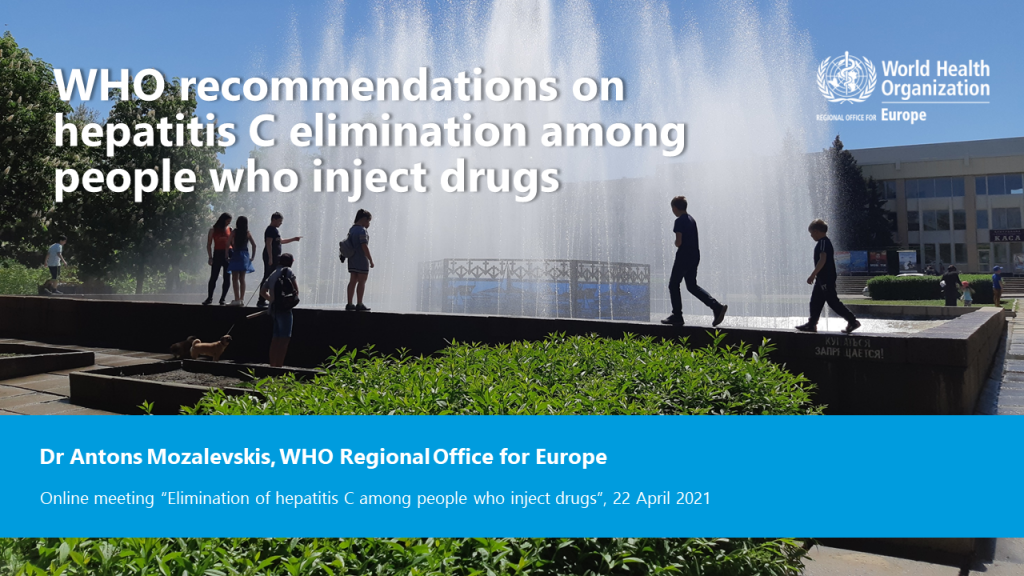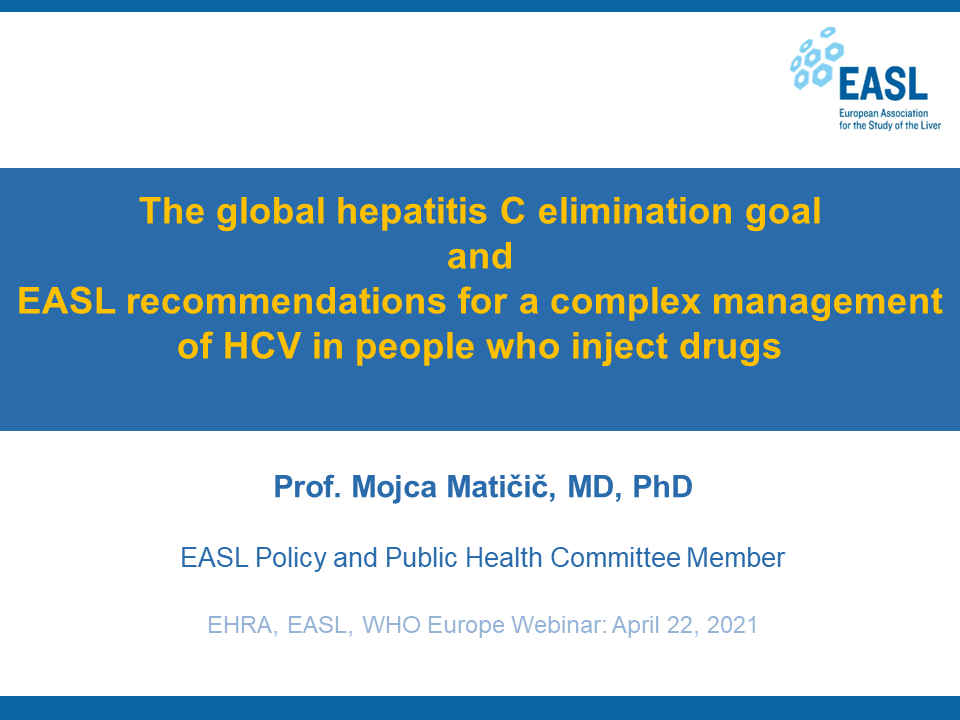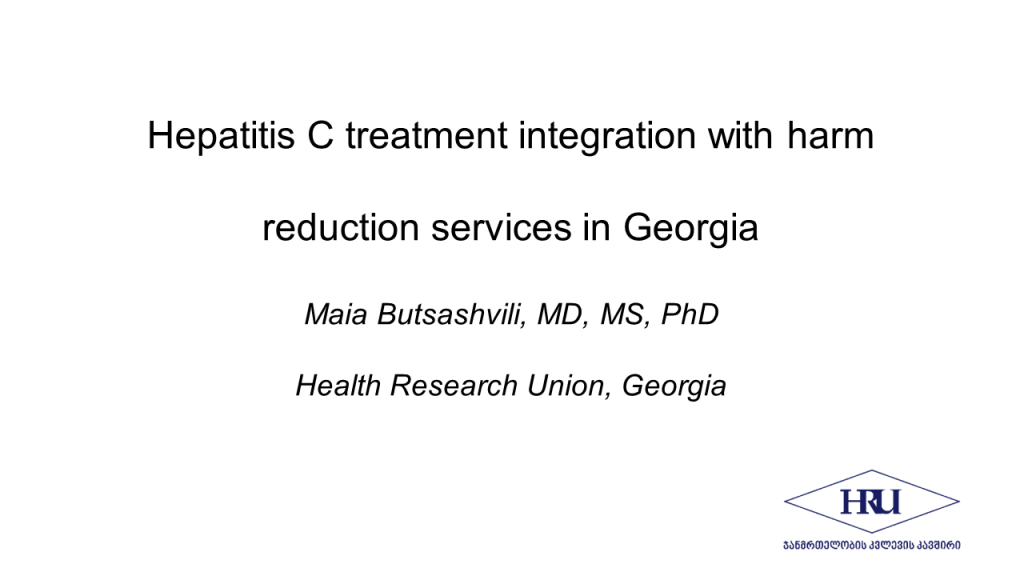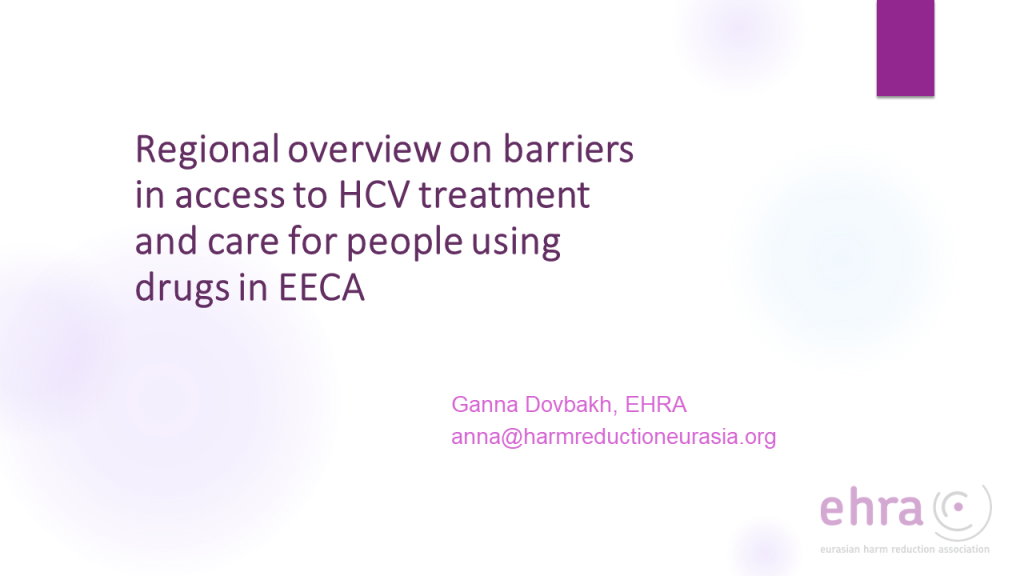On this page you will find materials of the webinar “Elimination of hepatitis C among people who inject drugs”, which took place on 22nd April 2021. The webinar provided an updated information on the situation with hepatitis C among people who inject drugs, including barriers in access to treatment and care in EECA region. Leading hepatitis C treatment experts presented latest WHO and EASL recommendations, including EASL policy statement on drug use in the context of the WHO Global Health Sector Strategy on Viral Hepatitis. Clinicians treating patients with hepatitis C and representatives from civil society organizations shared good practices in hepatitis C response among people who inject drugs in countries of ECCA.
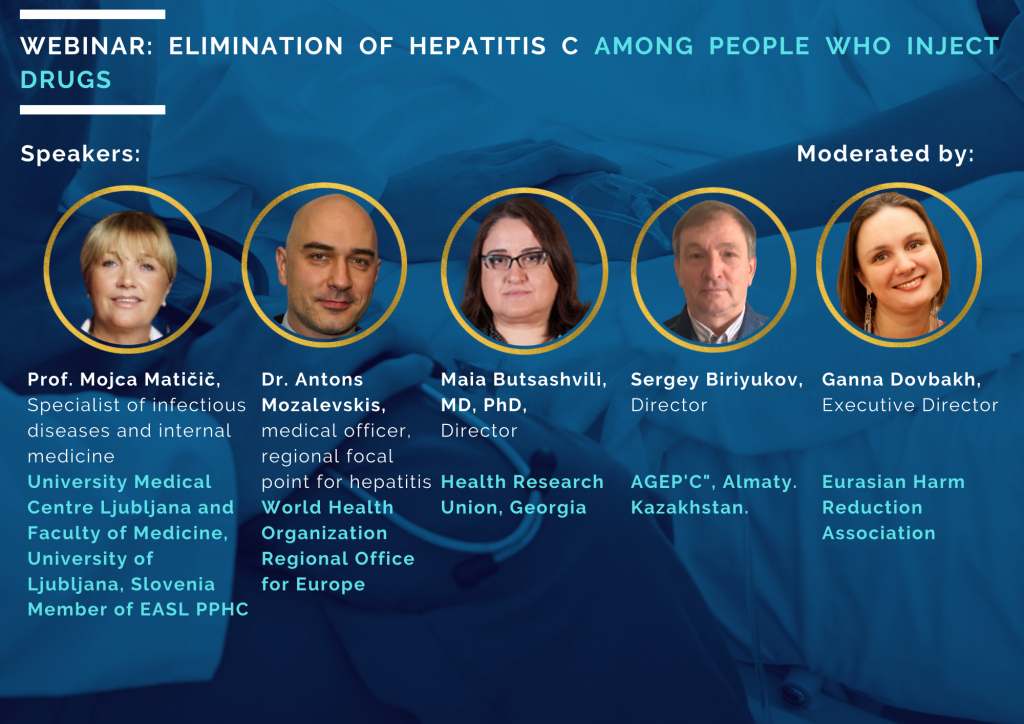
Objectives of the webinar
- to update clinicians treating patients with hepatitis C (e.g. hepatologists and infectious disease specialists) and clinicians working with people who inject drugs (e.g. addiction specialist, narcologists and prison doctors) on situation with hepatitis C among people who inject drugs, including barriers in access to treatment and care;
- to present latest WHO and EASL recommendations, including EASL policy statement on drug use in the context of the global hepatitis C elimination goal;
- to share good practices in hepatitis C response among people who inject drugs from countries of EECA.
Background
The prevalence of viral hepatitis C among people who inject drugs is very high in the Eastern Europe and Central Asia region and varies from 15 up to 94%. The WHO Global Health Sector Strategy on Viral Hepatitis sets the goal of eliminating hepatitis C as a public health threat by 2030 and it has been recognized that this goal cannot be achieved without addressing HCV-infection among people who inject drugs. The barriers to effective response to HCV among people who inject drugs include restrictive drug policies, poor access to cost-efficient harm reduction services, low hepatitis C testing, linkage to care and treatment, restrictions for accessing direct‐acting antiviral (DAA) therapy and the lack of national strategies and government investment to support WHO elimination goals.
Webinar agenda
Title | Speaker/facilitator |
Introduction, objectives of the webinar. | Ganna Dovbakh, EHRA |
Hepatitis C among people who inject drugs in EECA. WHO recommendations | Dr. Antons Mozalevskis, WHO/Europe |
The global hepatitis C elimination goal and EASL recommendations for a complex management of HCV in people who inject drugs | Prof. dr. Mojca Matičič, EASL |
Regional overview on barriers in access to treatment and care in EECA | Ganna Dovbakh, EHRA |
County experience | dr. Maia Butsashvili from Georgia Sergey Biriyukov from Kazakhstan |
Interactive discussion session with the webinar participants | Ganna Dovbakh, EHRA |
Conclusions and closing of the webinar | Ganna Dovbakh, EHRA |
Related materials
State of Harm Reduction in Eurasia
IDUIT – Implementing Comprehensive HIV and HCV Programmes with People Who Inject Drugs. Practical guidance for collaborative interventions
“Chase the virus, not people!”

